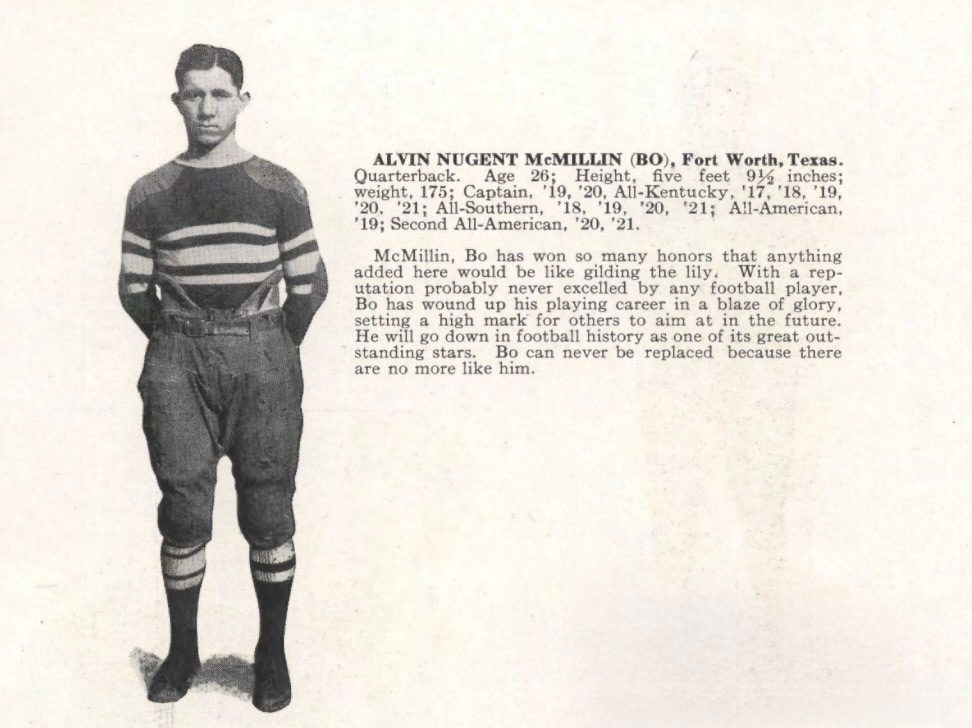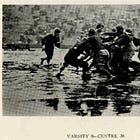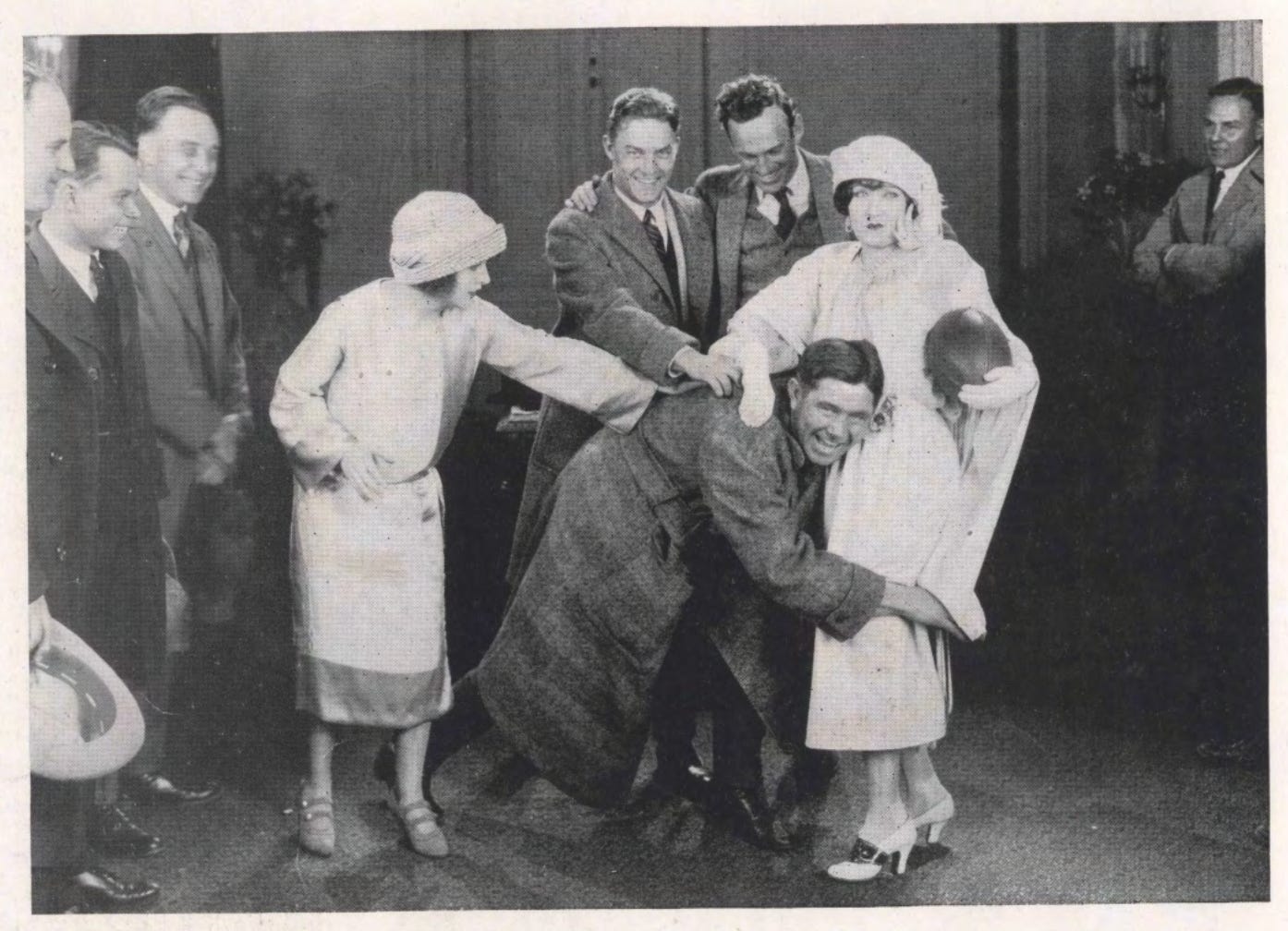Today's Tidbit... Getting Married Bowl Game Morning
It is bad luck to schedule a wedding on a Saturday during football season, largely because some of your best friends may choose to attend the game rather than your wedding. Few couples whose friends are sports fans make that mistake, but in at least one case, a three-time All-American said his wedding vows the morning of a bowl game.
The Centre-Texas A&M game in the 1922 Dixie Classic is best known to college fans today as the day Texas A&M's 12th Man tradition began. Teams did not dress many players back then, and after Texas A&M suffered several injuries, their coach, Dana X. Bible, signaled to the press box for E. King Gill to come on down. King, an Aggie basketball player and former football player, was working as a spotter. Upon arriving on the field, Bible instructed him to get dressed, swapping his civvies for A&M's injured captain's playing gear. King never entered the game, though he stood on the sideline ready to go if and when Bible and his school needed him.
The Aggies' opponent that day had gone through some things themselves. Centre did not have a national football reputation most years. However, in the years following WWI, they happened upon several stellar players, including their quarterback, Bo McMillin; Red Roberts, an All-American end; and a coaching staff that included Charlie Moran and Tiny Thornhill.
Following in Georgia Tech's footsteps, Centre was among the first Southern teams to gain recognition as being nationally competitive. They went 9-0 in 1919 and 8-2 in 1920, before their big 1921 season, which opened with victories over Clemson, Virginia Tech, Xavier, and Transylvania. Game #5 was at Harvard, where they'd lost in 1920, as Harvard claimed their second-straight national title.
This time around, however, Centre won 6-0 in one of the great upsets in college football history. They followed their performance in Boston with wins over Kentucky, Auburn, and Tulane, earning them invitations to two postseason games.
First, they met and demolished Arizona in the 1921 San Diego East-West Christmas Classic, 38-0. After eight days of rain, San Diego's Balboa Stadium field was a quagmire, but the sponsors did not postpone the game since they had insured themselves against rain to the tune of $25,000. They collected the money only if they played the game before the 3,000 attendees, so the game went on.
The team then boarded the train for Dallas and the Dixie Classic, hoping their gear would dry out in time for their January 2 game.
The organizers did not confirm the Centre-Texas A&M game until December 9, yet within a week, wedding invitations were in the mail for Bo McMillin's wedding, scheduled for the morning of the Dixie Classic. McMillin, who grew up in Fort Worth and attended North Side High with his fiancée Marie Meirs, planned a quick 9:00 AM wedding Mass and a breakfast at the bride's home, followed by a bus ride to Fair Grounds Stadium in Dallas for their 2:00 PM game.
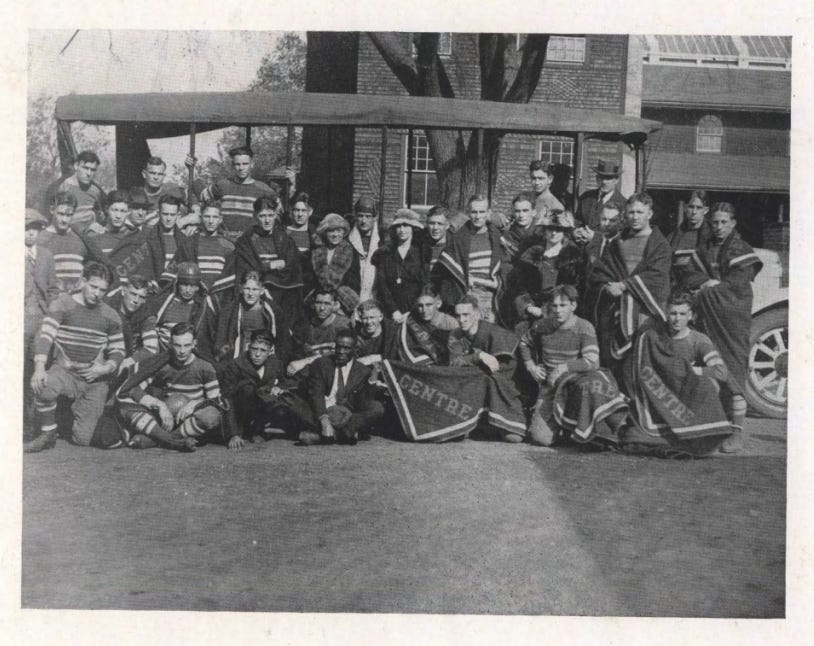
Everything went according to McMillin and Centre's plan that morning, but not so much in the afternoon. Centre, which had outscored its opponents 314 to 6 during the season, may have been a bit full of themselves in facing the 5-1-2 Aggies, who won the Southwest Conference by going 3-0-2.
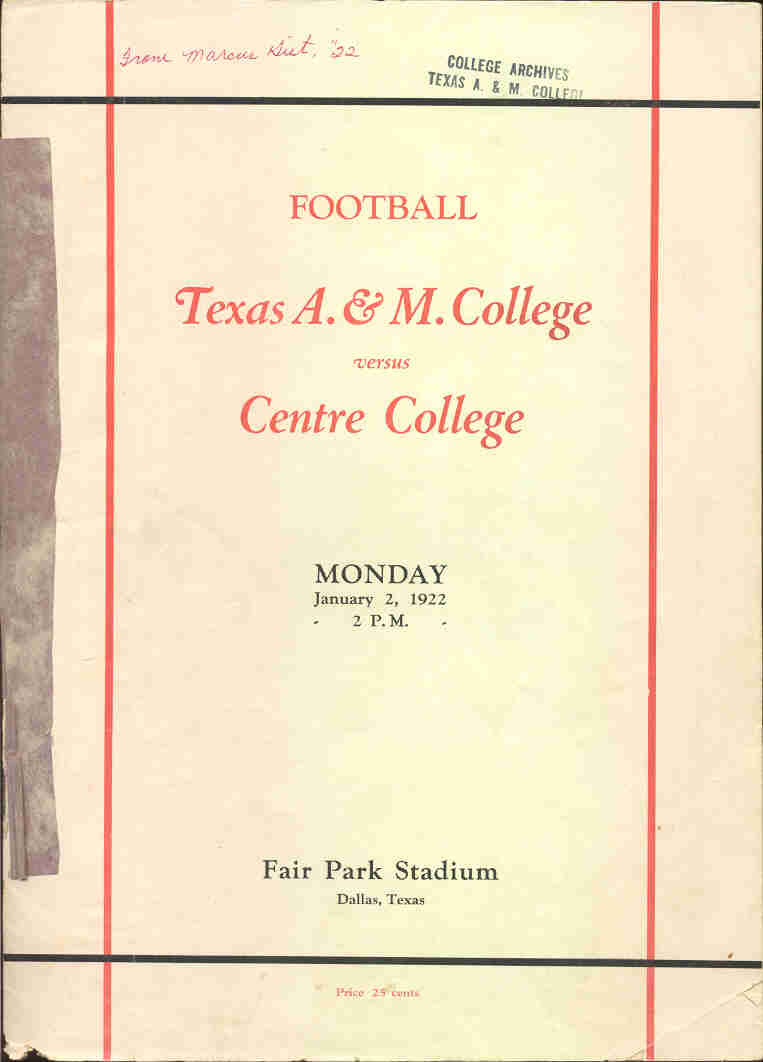
The only score in the first half came when A&M tackled a Centre punt returner for a safety, though Centre was inside the 1-yard line and failed to score as the half ended.
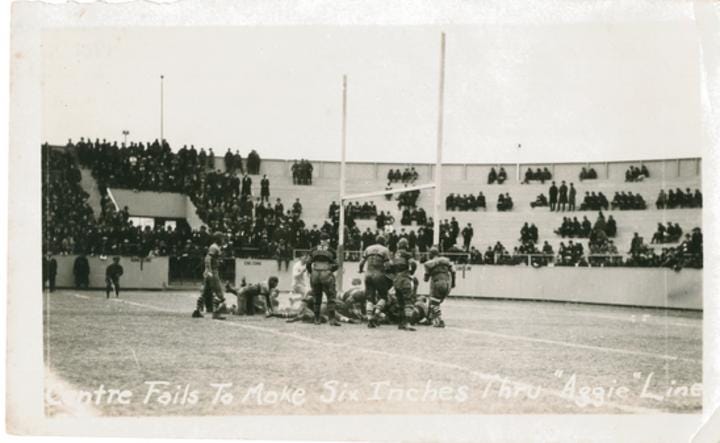
A&M fumbled inside the 10-yard line early in the second half, allowing Centre to score and take a 7-2 lead, after which A&M chose to kick off. (The team scored on had the choice to kick or receive in college football until 2003.)
Centre fumbled the kick and fumbled on their next possession as well, leading to two Aggie touchdowns. A pick six by Texas A&M and one more Centre touchdown ended the scoring to give the Aggies a 22-14 victory and Centre the wedding bell blues.
Additional sorrow came in 1926 when Marie McMillin died of pneumonia. Bo remarried and continued a long coaching career with stops at Centenary, Geneva, Kansas State, and Indiana, where he coached the 1945 Hoosiers to one of the school's two Big Ten football championships. He was inducted into the College Football Hall of Fame in 1951.
Starting in 1948, McMillin spent several unsuccessful years leading the Detroit Lions before moving to the Philadelphia Eagles. Early in his tenure there, an operation revealed he had stomach cancer, leading to his death less than six months later.
Click Support Football Archaeology for options to support this site beyond a free subscription.


